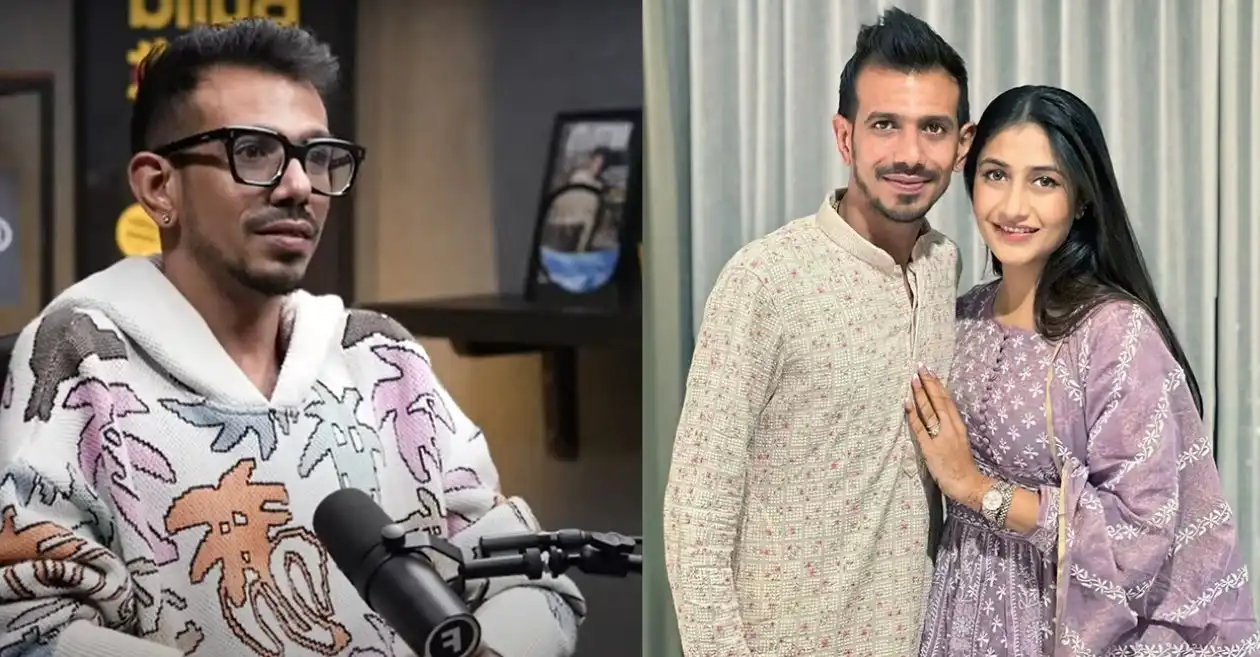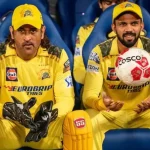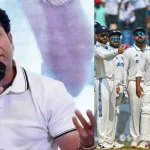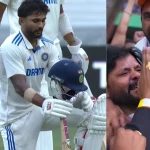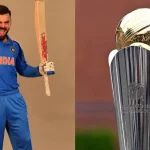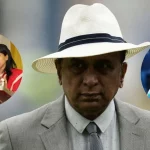Indian leg-spinner Yuzvendra Chahal is known for his on-field wizardry, but behind the cheerful demeanor lies a personal story marked by pain, heartbreak, and ultimately, resilience. For the first time since his highly publicized separation, Chahal has opened up about his divorce from Dhanashree Verma, shedding light on the emotional turmoil he endured and the strength it took to reclaim his life.
In a candid conversation on the Raj Shamani Podcast, Chahal offered an unfiltered glimpse into his struggles with mental health, the disintegration of his marriage, and how the glare of public scrutiny amplified an already painful period. His vulnerability has struck a chord across the nation, bringing into focus the immense pressure professional athletes face—not just on the field, but off it as well.
The Beginning of the End
When Yuzvendra Chahal and Dhanashree Verma tied the knot in December 2020, they became one of the most followed celebrity couples in India. A celebrated cricketer and a popular choreographer, they seemed to embody the millennial dream: ambitious, successful, and deeply in love.
However, behind the curated social media posts and public appearances, cracks had begun to form. Their individual careers, which initially brought them together, soon became the very reason for their emotional distance.
“We couldn’t meet much for 1–2 years,” Chahal shared during the podcast. “I was playing for India, and she was also doing her thing. We were both ambitious. Sometimes, even two ambitious people can’t find the time to live together.”
It’s a common reality in modern relationships, where career growth often competes with personal time. But for Chahal, the consequences went far beyond physical absence.
Behind Closed Doors – The Emotional Battle
What makes Chahal’s revelation so impactful is not just the fact that he went through a divorce—it’s how he chose to talk about the emotional cost. For someone known for his jovial social media presence and locker-room banter, the vulnerability he displayed took everyone by surprise.
“I got anxiety attacks. I was in depression. I had suicidal thoughts,” Chahal confessed, his voice calm but heavy with memory. “I watched so many things about myself on social media. I wanted a break from cricket.”
These words mark a significant departure from the usual silence athletes maintain about personal pain. In India, where mental health remains a taboo, especially among male public figures, Chahal’s bravery in addressing it directly is monumental.
He further described the physical effects of his anxiety: “I started shivering and sweating even though the AC was on. I couldn’t control it.”
The Role of Social Media
Social media, which once celebrated their union with hashtags and dance videos, turned vicious when rumors of their separation surfaced. Every unfollow, deleted photo, or cryptic post was dissected by fans and trolls alike.
This constant digital scrutiny exacerbated Chahal’s mental state. “It got to a point where I had to stop reading what people were saying,” he said. “They were creating their own stories, adding fuel to something I was already struggling to survive.”
Despite being a seasoned public figure, Chahal admitted that even he wasn’t prepared for the negativity that followed.
A Professional Pause for Personal Healing
Acknowledging the severity of his mental health condition, Chahal decided to take a much-needed break from cricket. During the Vijay Hazare Trophy 2024–25, he approached his state cricket board and requested time off.
“I told them I needed space to breathe. To think clearly. To just be a human being again, not a cricketer,” he revealed.
This move, though rare in Indian sports culture, was widely appreciated by mental health advocates and fans. By prioritizing his well-being over professional obligations, Chahal set a strong example—especially for younger athletes who often suffer in silence.
Why It Didn’t Work — Chahal on His Divorce
Beyond the emotional confession, Chahal also offered insight into why his marriage with Dhanashree Verma ultimately failed. Contrary to speculation, there was no scandal—just the quiet realization that they were not compatible in the long run.
“A relationship is like a compromise. If one gets angry, the other has to listen,” he said thoughtfully. “But sometimes, two people’s nature doesn’t match. And that’s okay.”
The reality, he added, was that their individual goals took precedence. “When you’ve worked 18–20 years to reach a certain level, you can’t just leave it all for a relationship. That would be unfair—to yourself and your partner.”
It was a mature and balanced take—one that neither blamed nor absolved anyone, but simply acknowledged the complexity of adult relationships.
Public Reaction — Support, Sympathy, and Reflection
Once the podcast aired, social media—which had once tormented Chahal—turned supportive. Messages poured in from fans, fellow cricketers, and mental health professionals praising his honesty.
“Chahal has done something incredibly brave,” tweeted former cricketer Robin Uthappa. “Opening up about suicidal thoughts isn’t easy. This needs to be talked about more in Indian sports.”
Mental health advocates also lauded the episode. “The fact that a cricketer of his stature is openly talking about depression and anxiety is a breakthrough moment,” said Dr. Rachna Sharma, a clinical psychologist. “It tells young men that it’s okay to ask for help.”
Life After Divorce – Chahal’s New Chapter
Today, Yuzvendra Chahal is focused on his recovery—both emotionally and professionally. With the domestic season coming up and hopes of a national comeback, he’s working hard to rebuild not just his career but his life.
“I’m still healing. But I’m also stronger than I was six months ago,” he said with quiet determination. “Now, I don’t run away from my feelings. I face them.”
He also emphasized the importance of mental health resources in sports. “Every cricket team should have a psychologist. We train our bodies, but what about our minds?”
Chahal has also taken up reading, meditation, and even mentoring younger players—proving that his evolution is not just about returning to form, but also growing as a human being.
More Than Just a Cricketer
Yuzvendra Chahal’s story is not just about a failed marriage or mental health—it’s about the human side of fame. The part we rarely see. The part hidden behind sunglasses, memes, and wickets.
By sharing his story, he has offered a rare gift to his fans: authenticity. In doing so, he has helped dismantle the toxic masculinity often associated with athletes and opened the door for more open conversations around emotional well-being.
In a world that often reduces sportsmen to statistics and performances, Chahal has reminded us all that vulnerability is not weakness—it is courage.
Please check for information on the best betting sites in India – https://selectory.org/best-betting-sites/
